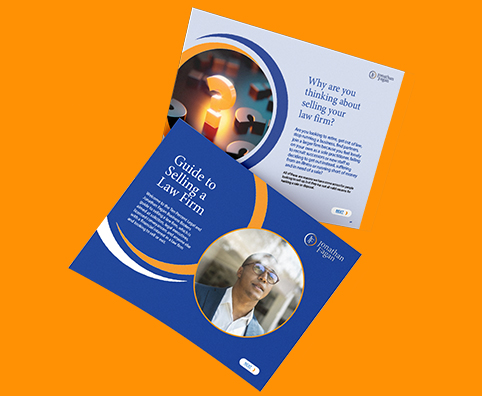
A brief outline of law firm ownership with the Republic of Ireland from Jonathan Fagan Business Brokers. If you spot anything factually incorrect below, please contact us.
Can non-solicitors own law firms?
In Republic of Ireland, non-lawyers can own or help run law firms, but only under certain rules. A law from 2015 established the concept of creating new business models, like Multi-Disciplinary Practices (MDPs), where non-lawyers can be part-owners or managers. However, they need special approval and must follow strict regulations.
Can non-lawyers own law firms similar to ABS in England and Wales?
In Republic of Ireland, non-lawyers can’t own law firms the same way they can in England and Wales under Alternative Business Structures (ABS). Irish law still requires law firms to be owned run by qualified lawyers.
There have been discussions about changing this, especially with Multi-Disciplinary Practices (MDPs), but no new laws have been passed yet to allow non-lawyer ownership similar to England and Wales.
Who regulates the legal profession?
The Legal Services Regulatory Authority (LSRA) is in charge of overseeing lawyers in Republic of Ireland. It was set up in 2015 to make sure lawyers follow the rules, handle complaints, and keep public trust in legal services.
What We Do – Legal Services Regulatory Authority
- The Law Society of Ireland also helps regulate solicitors, especially in training, admission, and discipline. Serious misconduct cases may be dealt with by the Legal Practitioners Disciplinary Tribunal, which works separately.
Structure of Legal Professionals
Legal Professionals are divided into two main types:
Solicitors – Work directly with clients.
Barristers – Represent clients in court.
Solicitors are regulated by the Law Society of Ireland, which oversees their education, admission, discipline and overall practice. Their role involves providing legal advice, preparing cases, and representing clients in lower courts. When cases go to higher courts, solicitors often hire barristers to advocate on behalf of their clients. In terms of business structure, solicitors can work alone as sole practitioners or form partnerships with other solicitors. However, they are not allowed to set up companies or limited liability partnerships. To qualify as a solicitor, individuals must pass the Law Society exams (FE1), complete a two-year traineeship, and undertake further professional courses (PPC1 and PPC2).
Barristers, on the other hand, are regulated by the Bar Council of Ireland. They receive their training at the Honourable Society of King’s Inn and are formally recognized as barristers by the Chief of Justice. Barristers specialise in courtroom advocacy and have the right to represent clients in all courts. Unlike solicitors, they usually work independently and are hired by solicitors when needed for cases. In terms of business structure, barristers cannot form partnerships, but they may be employed under certain conditions. Microsoft Word – Final version 260918.docx
Foreign Lawyers
EU/EEA/Swiss Lawyers: They can register in Ireland under the Establishment Directive (98/5/EC) and practice using their home-country title. They must sign up with the Law Society or the Bar Council and meet basic requirements such as proving their qualifications and have insurance. EN_Ireland_Practical-Guide-for-EU-EEA-and-Swiss-Lawyers-on-Service-and-Establishment.pdf
UK Lawyers: Since Brexit, UK-qualified solicitors and barristers can apply to work in Ireland. If they have 3+ years of experience, they may not need exams. Others may have to pass the Qualified Lawyers Transfer Test (QLTT).
Non-EU Lawyers: They must pass the QLTT, which tests Irish law knowledge, to qualify as solicitors. They also need a visa to live and work in Ireland. How can International Lawyers Practice in Ireland?
Foreign Law Firms: Can set up offices in Ireland to advise on international or home-country law but must follow Irish company rules. Doing-Business-in-the-RoI-07-11-24-008a-FINAL.pdf
What rules govern foreign legal consultants?
Foreign legal consultants in ROI follow different rules based on where they are from.
Outside of Europe: They can advise on their home counties law or international law without a license. But they cannot practice Irish law unless they officially qualify in Ireland.
From Europe: They can register under EU rules and practice using their home-country title. They’re allowed to advise on Irish, EU, and international law but must follow local rules such as getting insurance and registering.
All foreign lawyers must follow Irish professional conduct standards. Non-EEA lawyers cannot open firms for Irish law but can still offer legal services for their home countries law or international law. PFL Ireland_map.pdf






